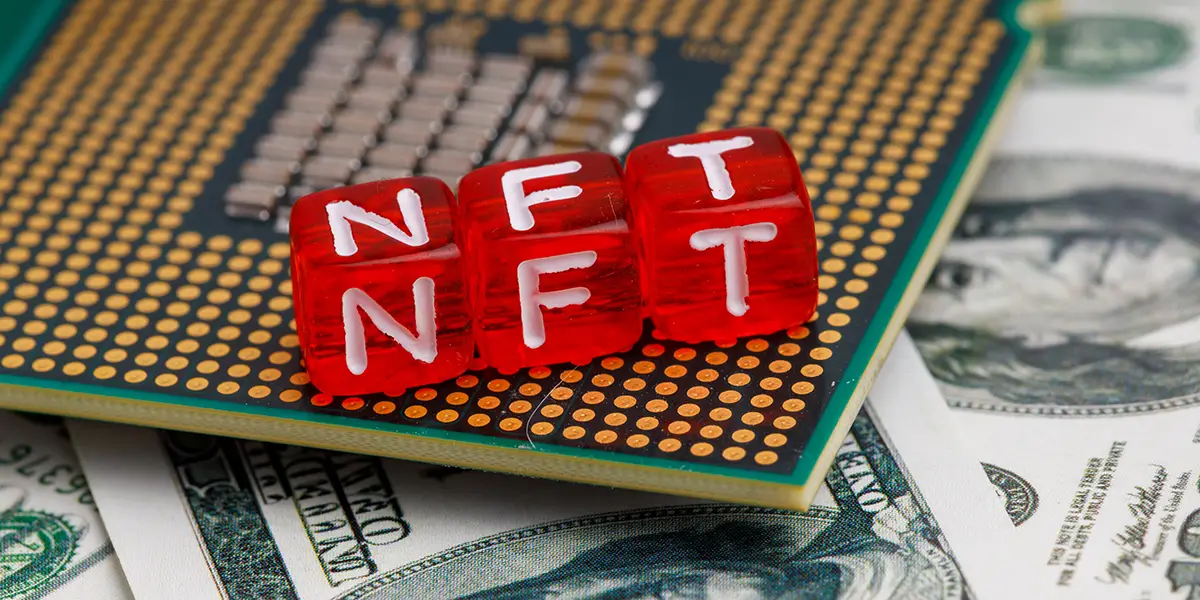Real-World Asset Craze Sends Polygon NFT Sales to the Top
22.04.2025 19:00 2 min. read Alexander Stefanov
Polygon has climbed to the forefront of the NFT market, taking the lead in weekly sales volume and surpassing Ethereum for the first time in months.
According to recent data, on April 22, Polygon-based NFTs generated $22.3 million in volume over seven days—enough to secure 24% of the entire NFT market’s sales during that period, which totaled nearly $93 million.
Fueling this unexpected jump was a sharp increase in user activity, with more than 39,000 unique buyers on the network—an 81% surge from the previous week. While Ethereum came in second with $19.2 million in sales, Mythos Chain and Bitcoin-based collections followed closely with $14.3 million and $14.1 million respectively.
The sudden momentum for Polygon was largely thanks to one standout collection: Courtyard NFTs. Specializing in tokenized physical collectibles, Courtyard brought in over $20 million in sales alone, dominating the charts and signaling growing interest in real-world asset (RWA) NFTs.
This collection focuses on highly sought-after graded cards—like Pokémon and sports trading cards—which are tokenized and stored securely in vaults. Buyers have the option to redeem the physical card, which removes the NFT from circulation. This model bridges the gap between tangible collectibles and blockchain ownership.
The broader trend of tokenizing real-world items continues to gain traction. According to RWA.xyz, the value of tokenized real-world assets has reached $21.2 billion in 2025 so far, with over 97,000 holders involved. This figure doesn’t even count stablecoins, which are valued at over $227 billion on-chain.
-
1
Robinhood Enters European Crypto Arena with Bitstamp Takeover
03.06.2025 15:00 2 min. read -
2
Morgan Stanley Warns Market May Be Overlooking Tariff Fallout
04.06.2025 9:00 1 min. read -
3
Tokenized Funds Are Quietly Reshaping Institutional Finance
04.06.2025 13:21 1 min. read -
4
Wall Street Veteran Warns Tariffs Could Disrupt AI-Driven Market Rally
05.06.2025 12:00 1 min. read -
5
Elon Musk and Donald Trump Clash in Fiery Policy Fallout
06.06.2025 8:00 2 min. read
Anthony Pompliano Unveils Bitcoin Treasury Giant After Landmark Merger
Investor and entrepreneur Anthony Pompliano is rolling his private outfit, ProCap BTC LLC, into blank-check firm Columbus Circle Capital to form ProCap Financial, a new Nasdaq-listed business built around Bitcoin.
FTX Pushes to Dismiss Billion-Dollar Claim from 3AC
FTX’s legal team has moved to dismiss a $1.53 billion claim filed by Three Arrows Capital (3AC), calling it an exaggerated and baseless attempt to recover losses from risky trading.
FTX Pushes Back Against $1.5B Claim From Defunct Hedge Fund 3AC
FTX’s liquidators have filed a strong objection to a multi-billion-dollar claim by failed hedge fund Three Arrows Capital (3AC), arguing the request is based on exaggerated and misleading figures.
Massive Foreign Capital Exodus from U.S. Markets Raises Alarms
Veteran investor Jeffrey Gundlach is signaling a major turning point in global capital flows, suggesting that the era of U.S. market dominance may be drawing to a close.
-
1
Robinhood Enters European Crypto Arena with Bitstamp Takeover
03.06.2025 15:00 2 min. read -
2
Morgan Stanley Warns Market May Be Overlooking Tariff Fallout
04.06.2025 9:00 1 min. read -
3
Tokenized Funds Are Quietly Reshaping Institutional Finance
04.06.2025 13:21 1 min. read -
4
Wall Street Veteran Warns Tariffs Could Disrupt AI-Driven Market Rally
05.06.2025 12:00 1 min. read -
5
Elon Musk and Donald Trump Clash in Fiery Policy Fallout
06.06.2025 8:00 2 min. read


